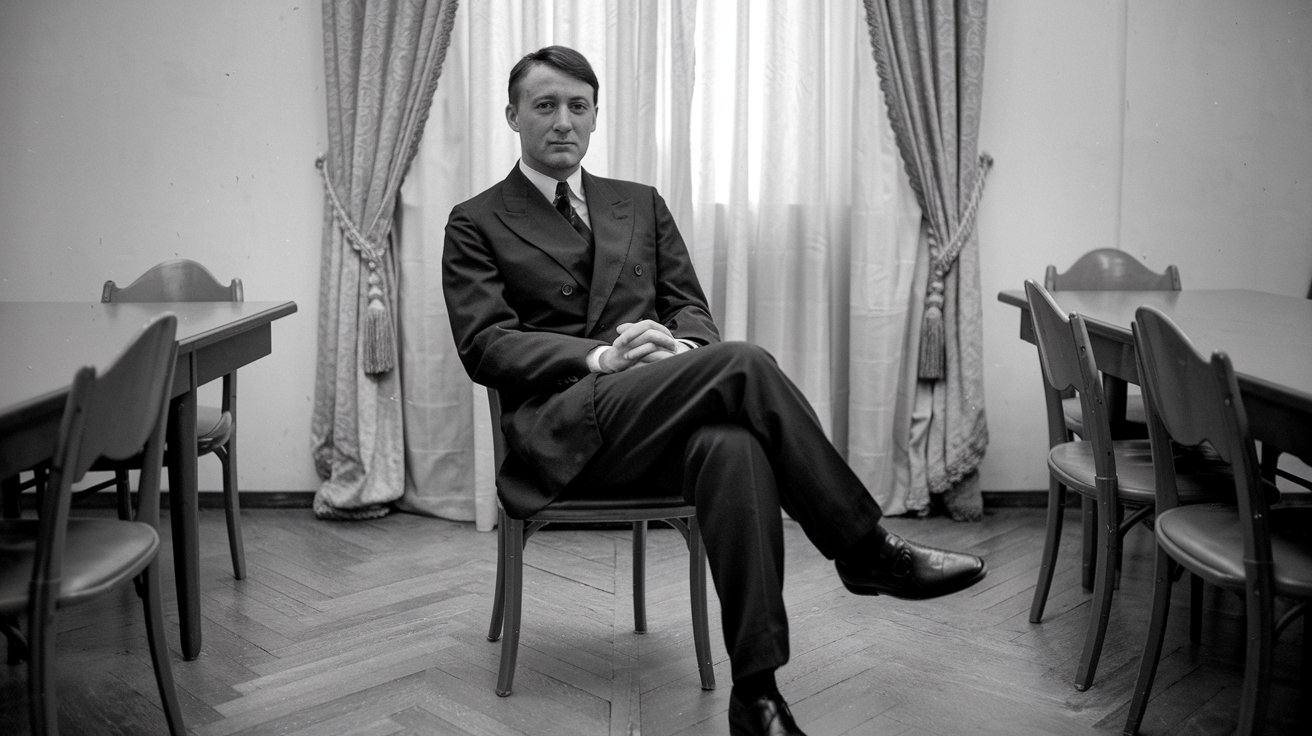
Who was Romano Mussolini? Romano Mussolini, born September 26, 1927, was an Italian jazz pianist, painter, and film producer. Why is he significant? He was the fourth son of Benito Mussolini, Italy's infamous dictator. Despite his controversial family background, Romano carved out his own identity in the world of music and art. What made him unique? His passion for jazz, a genre often frowned upon by fascist regimes, showcased his rebellious spirit. Did he face challenges? Absolutely. Balancing his artistic ambitions with the heavy shadow of his father's legacy was no easy feat. Why should you care? Romano's life is a testament to the power of pursuing one's passion despite societal expectations and historical burdens.
Key Takeaways:
- Romano Mussolini, son of Italy's dictator, Benito Mussolini, was a talented jazz musician and painter who left a lasting impact on the music and art worlds. His legacy continues to inspire new generations of artists and musicians.
- Despite his famous lineage, Romano Mussolini pursued a path of music and art, leaving behind a rich legacy of jazz compositions and valuable paintings. His multifaceted personality and creative genius continue to captivate and inspire.
Early Life and Family Background
Romano Mussolini, born on September 26, 1927, was the fourth son of Italy's infamous dictator, Benito Mussolini. His life was marked by a unique blend of political legacy and artistic talent.
- Romano was born in Forlì, Italy, a city known for its rich history and cultural heritage.
- His mother, Rachele Guidi, was Benito Mussolini's wife and a significant figure in his life.
- Romano had four siblings: Edda, Vittorio, Bruno, and Anna Maria.
- Despite his father's political notoriety, Romano pursued a different path, focusing on music and art.
Musical Journey
Romano Mussolini's passion for music began at a young age. He became a renowned jazz pianist, carving out a name for himself in the music world.
- Romano started playing the piano at the age of four, showing early signs of musical talent.
- He was heavily influenced by American jazz musicians like Duke Ellington and Count Basie.
- In the 1950s, Romano formed his own jazz band, the Romano Mussolini All Stars.
- His band gained popularity in Italy and performed at various prestigious venues.
- Romano released several albums, including "Jazz Allo Studio 7" and "Soft & Swing."
- He collaborated with famous jazz artists such as Chet Baker and Lionel Hampton.
Artistic Pursuits
Apart from music, Romano Mussolini was also an accomplished painter. His artworks reflected his diverse interests and creative spirit.
- Romano's paintings often depicted serene landscapes and abstract themes.
- He held numerous exhibitions across Italy, showcasing his artistic talent.
- His works were well-received by art critics and enthusiasts alike.
- Romano's art style was influenced by both classical and modern techniques.
- He used a variety of mediums, including oil paints and watercolors.
Personal Life
Romano Mussolini's personal life was as intriguing as his professional endeavors. He balanced his artistic pursuits with family responsibilities.
- Romano married Maria Scicolone, the younger sister of actress Sophia Loren, in 1962.
- The couple had three daughters: Elisabetta, Alessandra, and Rachele.
- Alessandra Mussolini followed in her grandfather's political footsteps, becoming a prominent politician in Italy.
- Romano was known for his humble and down-to-earth personality, despite his famous lineage.
- He maintained a close relationship with his family, often involving them in his musical and artistic projects.
Legacy and Influence
Romano Mussolini left a lasting impact on both the music and art worlds. His contributions continue to be celebrated and remembered.
- Romano's jazz compositions are still appreciated by jazz enthusiasts worldwide.
- His paintings are considered valuable pieces of art, often sought after by collectors.
- Romano's unique blend of music and art set him apart from other artists of his time.
- He received several awards and accolades for his contributions to jazz music.
- Romano's legacy is carried on by his daughters, who continue to honor his memory through their own achievements.
Lesser-Known Facts
There are many lesser-known aspects of Romano Mussolini's life that add depth to his intriguing persona.
- Romano was a self-taught musician, learning to play the piano by ear.
- He had a deep love for classical music, often incorporating it into his jazz performances.
- Romano was an avid reader, with a particular interest in history and philosophy.
- He enjoyed traveling and often drew inspiration for his paintings from his travels.
- Romano was fluent in multiple languages, including English and French.
Final Years
Romano Mussolini's later years were marked by continued creativity and reflection on his life's work.
- Romano continued to perform and paint well into his seventies.
- He published an autobiography, "Il Duce, My Father," offering insights into his life and family.
- Romano's health began to decline in the early 2000s, but he remained active in his artistic pursuits.
- He passed away on February 3, 2006, in Rome, Italy, leaving behind a rich legacy.
- Romano's funeral was attended by numerous dignitaries, artists, and fans, reflecting his widespread influence.
Interesting Tidbits
Romano Mussolini's life was filled with interesting tidbits that highlight his multifaceted personality.
- Romano was a skilled chess player, often participating in local tournaments.
- He had a passion for cooking and was known for his delicious Italian dishes.
- Romano enjoyed gardening, finding peace and inspiration in nature.
- He was a fan of classic cinema, with a particular fondness for Charlie Chaplin films.
- Romano's favorite color was blue, often reflected in his paintings.
Impact on Popular Culture
Romano Mussolini's influence extended beyond his immediate artistic circles, impacting popular culture in various ways.
- His music has been featured in several films and television shows.
- Romano's life story has been the subject of documentaries and biographies.
- His paintings have been displayed in prominent galleries and museums worldwide.
- Romano's legacy continues to inspire new generations of musicians and artists.
- His unique blend of jazz and art remains a testament to his creative genius.
Romano Mussolini: A Life Beyond Politics
Romano Mussolini's life was a blend of music, art, and history. Known primarily as the son of Benito Mussolini, Romano carved his own path in the world of jazz. His talent on the piano earned him respect and admiration far beyond his father's shadow. He collaborated with jazz legends, released several albums, and even painted, showcasing his diverse artistic abilities.
Despite his family's controversial past, Romano focused on his passions, leaving a legacy in the arts. His story reminds us that individuals can transcend their backgrounds and make unique contributions to society. Romano Mussolini's life is a testament to the power of creativity and resilience. His journey through music and art offers a fascinating glimpse into a man who lived beyond the confines of his famous surname.
Frequently Asked Questions
Was this page helpful?
Our commitment to delivering trustworthy and engaging content is at the heart of what we do. Each fact on our site is contributed by real users like you, bringing a wealth of diverse insights and information. To ensure the highest standards of accuracy and reliability, our dedicated editors meticulously review each submission. This process guarantees that the facts we share are not only fascinating but also credible. Trust in our commitment to quality and authenticity as you explore and learn with us.


